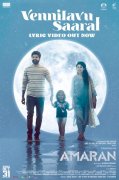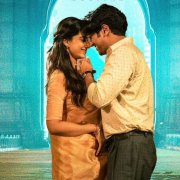falls in the Tamil month of Thai (January). Pongal in Tamil means boiling over or spill over. The act of boiling over of milk in the clay pot is considered to denote future prosperity for the family.
Four days of Pongal Festival: Pongal is celebrated for four consecutive days. These are:
Bhogi - This is the first day of Pongal festival. It is celebrated on the last day of the Tamil month Margazhi. Bhogi marks the beginning of the festival. It is celebrated in honor of Lord Indra, "the God of Clouds and Rains". On this day all the old and useless clothes and materials are set on fire marking the end of the old month of 'Margazhi' and the
begining of the new month 'Thai'. All the people will clean their houses on this day. This day is for the family to be together happily.
Surya Pongal - The second day of Pongal is known as Surya Pongal and is dedicated to the Sun God. This falls on the first day of the Tamil month 'Thai'. This day is also know as Thai Pongal or Sarkarai Pongal or Veetu Pongal. it is celebrated by boiling rice with fresh milk and jaggery in new pots, which are later topped with brown sugar, cashew nuts and raisins early in the morning and allowing it to boil over the vessel. This tradition gives Pongal its name. The first offering is made to the Sun.
Mattu Pongal - The third day of Pongal festival is Mattu Pongal. This is for offering thanks to the cattle for their help to farmers in agriculture. On this day the cattle are decorated with paint, flowers and bells. They are allowed to roam free and fed sweet rice and sugar cane. Lord Ganesh and Goddess Parvati are worshiped and Pongal is offered to them in the puja. 'Jallikattu' - A Bull Festival is held in Madurai, Tiruchirapalli and Tanjavur on this day. This is the tamimg of wild bull by people. This was banned by Supreme Court of India this year(2008), but was revoked later.
Kaanum Pongal - This is the final day of Pongal. 'Kanum' means 'to see'. People visit their friends and relatives during this day. They chew sugarcanes and decorate their homes with 'Kolams'. Freshly cooked food especially "Sarkarai Pongal" is offered to Sun God on this day.
Elaborate Kolams are put on all the four days of the Pongal in front of the houses in Tamilnadu.
Pongal in other regions of India: Pongal is celebrated in other parts of India also in different names. In Karnataka, Pongal is called "Sankranti". Special prayers are offered in
all houses. People wear colourful clothes and visit their near and dear ones on this festival. In Kerala, the festival is known as "Makara Sankranthi". On this day at the hill shrine of Sabarimala, lakhs of pilgrims witness a star-like celestial light of incredible splendor appearing on the horizon. Known as Makara Jyothi, this miracle occurs at
the time of the evening Deeparadhana.
In Maharashtra and Gujarat, January 14 is celebrated as "Makar Sankranthi". It is marked by the flying of kites. The difference is that in Gujarat there is a custom of giving gifts to relatives. The elders in the family give gifts to the younger members of the family.
In Utter Pradesh, the day of Pongal is celebrated as Makar Sankranti. It is generally known as "Kicheri". Having bath on this day is regarded as most important. In Andhra Pradesh, Pongal celebrations start a month in advance. Bhogi is the day preceding Sankranti and Kanumu is the day after. On Bhogi day, in the early morning, a bonfire is lit up with waste before the traditional special bath. Pongali (rice pudding with milk) is an important item during this festival.
The period is referred to as Uttarayan Punyakalam and is considered auspicious. Legend has it that the Devas wake up after a six-month long slumber during this period.
 Amaran
Amaran Brother
Brother Lucky Baskhar
Lucky Baskhar Vettaiyan
Vettaiyan Meiyazhagan
Meiyazhagan Thangalaan
Thangalaan The Greatest Of All Time
The Greatest Of All Time Mazhai Pidikkatha Manithan
Mazhai Pidikkatha Manithan